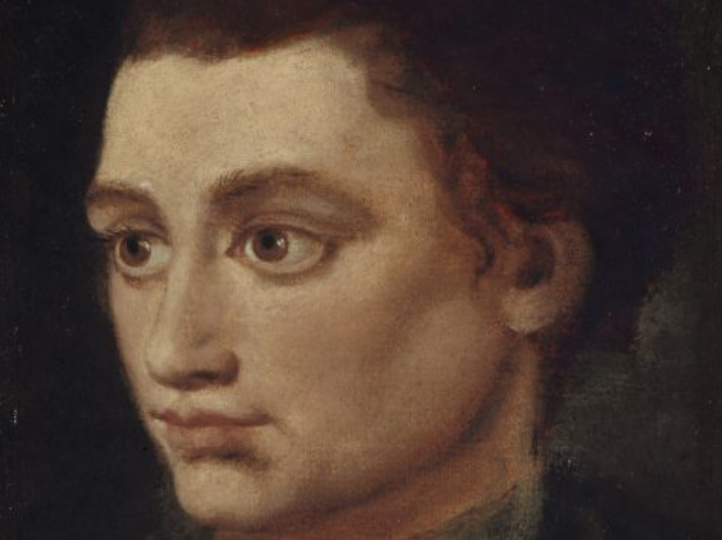
AULD REIKIE Three Choruses for TTBB chorus and piano.
Poems by Robert Fergusson (1750-1774) (6 min.)
Settings of the great Scottish poet as he critically observes life and death as well as love and humor in 18th Century Edinburgh.
Read the notes and Fergusson’s poems.
EARTH SONGS Four Choruses for TTBB chorus and piano. Poems by John Haag (1926-2008). (9 min.)
John Haag studied with Theodore Roethke and then taught at Penn State where he shared his love of nature and human existence with his students and through his poetry. The poems are both beautiful and powerful, and we quote lines from the poems. The last song concludes with the renewal theme from my choral symphony Mountain Laurels, the only proper way to conclude the set. The cycle was premiered by the Penn State Glee Club on Earth Day.
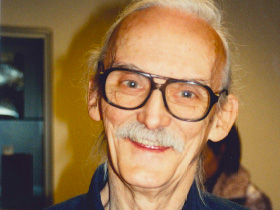
. . . . At rest on the massive stability
of stone, under the blue fluidity of sky, we
ask of this mountain only that it accept
our heart's profound affection.
2. The Boy Who Dined on Rainbows View the score. Listen to midi.
. . . . Rising, with willow pole
and skein of dripping rainbows,
I strode the dirt road home, never
touching the ground.
3. “Paint like a man . . “ View the score. Listen to midi.
The full title of this poem tells all: “Paint like a man going over the top of a hill, singing.” Robert Henri (1865-1929).
4. Song Dogs View the score. Listen to midi.
. . . . Coyote has followed me East - a long
journey - but he has time. He came
to tell me soon they will sing
the Spinning Faster Song, accelerating
the Earth until only those who
love Her enough can hang on.
When the fools have been flung far
into the void, the song will cease.
And we who love Her will live
in the Earth’s love
at the Earth’s pace
to Coyote’s songs.
for what we want. We have what we want.”
Kickapoo Shaman
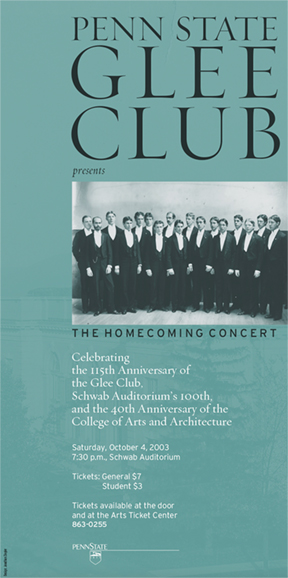
HOUSE OF ART Three connected choruses praising the arts for TTBB voices and piano.
Text by Jason Charnesky (6 min.)
Commission and Premiere: For the 115th Anniversary of the Penn State Glee Club (1888-2003); the Centenary of Schwab Auditorium (1903-2003); and the 40th Anniversary of the College of Arts and Architecture (1963-2003), Penn State. (5 min.)
Although written for a Penn State celebration, the three interconnected pieces celebrate the arts and would be a celebratory piece for any interdisciplinary arts commemoration.
Read the lyrics. View the score. Listen to the Penn State Glee Club 2003 live.
The world is a blessing and the blessing falls upon three houses that stand in the center of it all:
the House of Being, the House of Life, and the House of Art . . . .
Architect! raise up the House of Song!
Let its rafters strain to heaven.
Let its walls encompass all.
Let its door forever open freely onto truth.
And let truth be led by beauty.
Let each singer rejoice in the strength of the voice
woven in the vast pattern of Song,
and let Art acquiesce to the earth's own excess
and return thousandfold what was sown.
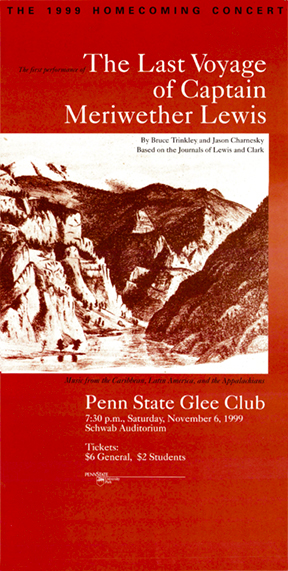
THE LAST VOYAGE OF CAPTAIN MERIWETHER LEWIS
Dramatic cantata for men’s voices, baritone, soprano, bass and piano or piano quartet.
Text by Jason Charnesky. Based on the Journals from the Lewis and Clark Corps of Discovery (1894-1806). (35 min.)
Commission and Premiere: Penn State Glee Club with Mark Whatley, baritone, Elisa Mathews, soprano, Korey Jackson, baritone; Penn State Glee Club with the Castalia Piano Trio with Timothy Deighton, viola. Homecoming Concert, November 6, 1999.
In the depths of despair, Meriwether Lewis (1774–1809) is suffering through his last night when he doubts that his exploits and life have meant anything. The ensuing eight songs follow the explorer as he remembers the exciting days with the Corps of Discovery, the beautiful never-ending Missouri River, and York, the only African American on the expedition and Sacajawea who guided the Corps to the Pacific. Finally the treacherous crossing of the forbidding Bitterroot Mountains. In the last song Lewis, in a grand operatic scena, takes courage in his accomplishments and then departs this life heroically, knowing that he will be remembered as a great explorer and scientist.
Read the notes. The recordings are from the premiere performance.
2. The Corps of Discovery (Lewis and the Corps) View score. Listen to premiere.
3. A New Eden (soprano, the Corps and Lewis) View score. Listen to premiere.
4. Mess Call (soloists and the Corps) View score. Listen to premiere.
5. York (Lewis, York and the Corps) View score. Listen to premiere.
6. A Grizzly Tale (Lewis and the Corps) View score. Listen to premiere.
7. Bird Woman (Sacajawea and the Corps) View score. Listen to premiere.
8. Bitterroot (Lewis and the Corps) View score. Listen to premiere.
9. Homeward Bound (Instrumental Interlude) View score. Listen to premiere.
10. First Light (Lewis, soprano, York and the Corps) View score. Listen to premiere.
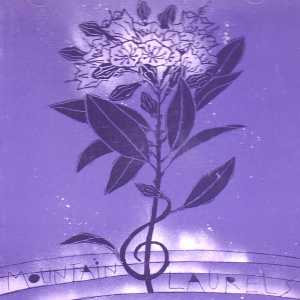
FOUR CHORAL CYCLES for TTBB Voices from MOUNTAIN LAURELS: A Choral Symphony
Lyrics by Central Pennsylvania poets.
Commission: Pennsylvania Council on the Arts and the State College Centennial Commission.
Journeys is the major cycle in the Symphony for men, serious and resonant. Then two groups of “tags” - very brief jokes or one-liners - for barbershop quartet or chorus from Froth, the Penn State humor magazine. There is a double pun in these titles since Frothiana refers not only to Froth but also to the classic choral cycle Frostiana. and goes even further with Frothy Encores. The Grooves of Academe, yet another punning title, is a mid-twentieth century choral time capsule of cultural references in pop styles for the Hilos. The lyrics are from a time when such humor was prevalent on college campuses. Your singers will delight in these short but effective ditties.
Read the lyrics to Frothiana, Frothy Encores and The Grooves of Academe.
JOURNEYS for men’s chorus and piano or brass quintet and timpani. Premiere by the Penn State Glee Club and School of Music Brass Quintet.
2. I Know a Road Poem by Joseph Grucci (1908-1982) View score. Listen to the Glee Club.
3. Drypoint: evening of first snow Poem by Deborah Austin (1920-2013) View score. Listen to the Glee Club.
4. Spring Fever Poem by Emily Grosholz. View score. Listen to the Glee Club.
(H) FROTHIANA Four tags for barbershop quartet or chorus. Texts from Froth, the Penn State humor magazine.
Premiered by The Nittany Knights, the Central Pennsylvania Barbershop Chorus.
(H) FROTHY ENCORES Four more tags for barbershop quartet or chorus. Texts from Froth.
Premiered by The Nittany Knights.
(H) THE GROOVES OF ACADEME: Four Revolutionary Folk Songs for men's small ensemble and piano, with optional bass and drums. Texts from Froth.
Premiered by the Hilos from the Penn State Glee Club.
2. The Party View score. Listen to the Hilos.
3. Radical Rag (Ron Bonn ‘52) View score. Listen to the Hilos.
4. “I hate the guys who . . . “ View score. Listen to the Hilos and the Voice of Old Main bid adieu.
(H) THE POEMS ARE TALKING TO THEMSELVES AGAIN Two–part men’s voices and piano.
Poems by James Laughlin (1914-1997).
Laughlin was the founder of New Directions publishing house and was a poet himself. His idiosyncratic and quirky two-line stanza poems are often self-reflexive and beloved by his fans. These are unique in the world of poetry, but obviously influenced by e.e. cummings.
Read the poems. Read the notes.
2. The Poem Factory View the score. Listen to midi.
3. Like the Octopus View the score. Listen to midi.
4. The Word Machine View the score. Listen to midi.
The poems are talking to them-
selves again they're bored
with me over the years they've
heard everything I have to say
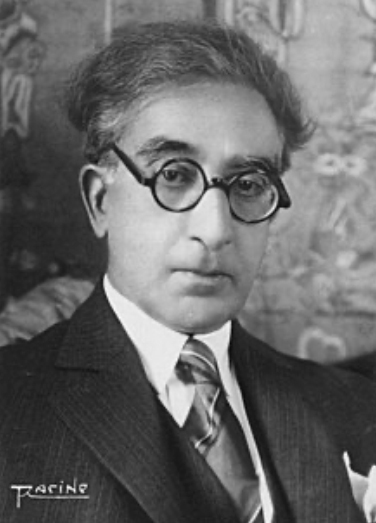
(1863-1933)
VOICES Four choruses TTBB, SATB or SSAA and piano. Yelton Rhodes YR 4902v1.
Poems by Constantin Cavafy (1863-1933), the most distinguished Greek poet of the 20th century. The four poems chronicle his life and clandestine loves in Istanbul and Alexandria in the early years of the century. His powerful poem Expecting the Barbarians chronicles fears and rumors in an ancient city, but can also apply to the threat of invasion and war in modern times.
Commissioned by Federal City Performing Arts for their 5th Anniversary Concert at the Kennedy Center, Washington, D.C. in 1987.
Premiere: Vancouver Men's Chorus, Willi Zwozdesky, Conductor. 1986.
Read the poems.
WAGON TRAIN SHOW Selections from the Pennsylvania Bicentennial Wagon Train Show (1976) arranged for TTBB or SATB chorus and piano. (12 min.) Music and lyrics by distinguished playright Roger Cornish (1934-2000), Bruce Trinkley and Broadway composer Don Tucker. Recordings by the original cast.
2. Arlington (Music and lyrics by Don Tucker) View score. Listen to WTS cast.
3. We Haven’t Discovered America Yet (Music and lyrics by Don Tucker) View score. Listen to WTS cast.
4. I Leave You (American Anthem) View score. Listen to WTS cast.
THE WAR PRAYER For Speaker, Soloists, TTBB or SATB Chorus, and Keyboard or Brass Quintet and Percussion Ensemble. (First performance with dancers and speaker.) Text by
Mark Twain (1835-1910).
Commission and Premiere: Pennsylvania Vocal Ensemble and Contemporary Dance Company, Playhouse Theatre 1972. First TTBB performance: Federal City Performing Arts Chorus, University of the District of Columbia. June 1989. Revival: Concert for Peace: Penn State Glee Club and Women's Chorus with Jonathan Frakes, narrator. April 1993 Schwab Auditorium.
Download SATB score. Listen to 1993 performance with Jonathan Frakes as the Speaker.
Contact the composer for TTBB piano vocal score or full score.
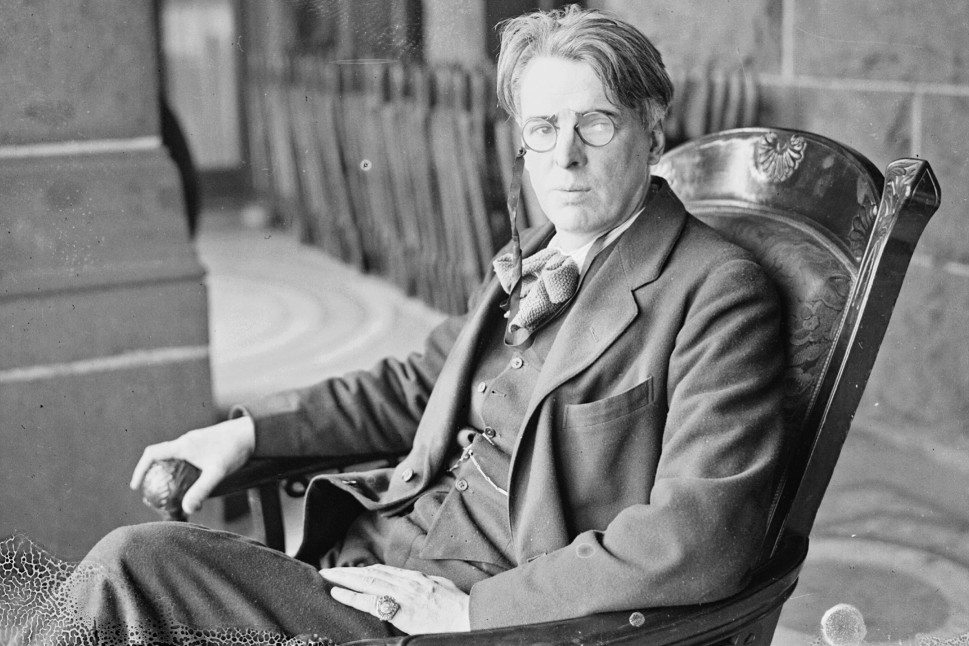
YEATS SONGS For TTBB Chorus and Piano. Poems by William Butler Yeats (1865-1939) (4 minutes)
Irish poet and international man of letters, Yeats wrote in a variety of styles. Here his dark vision is expressed in three short poems, ending with a touching lyric that is more of a love poem than a drinking song. (3 minutes)
View the poems and score.
2. To a Squirrel at Kyle-Na-No Listen to midi.
3. Drinking Song Listen to midi.
Wine comes in at the mouth
And love comes in at the eye;
That’s all we shall know for truth
Before we grow old and die.
I lift the glass to my mouth,
I look at you, and I sigh.